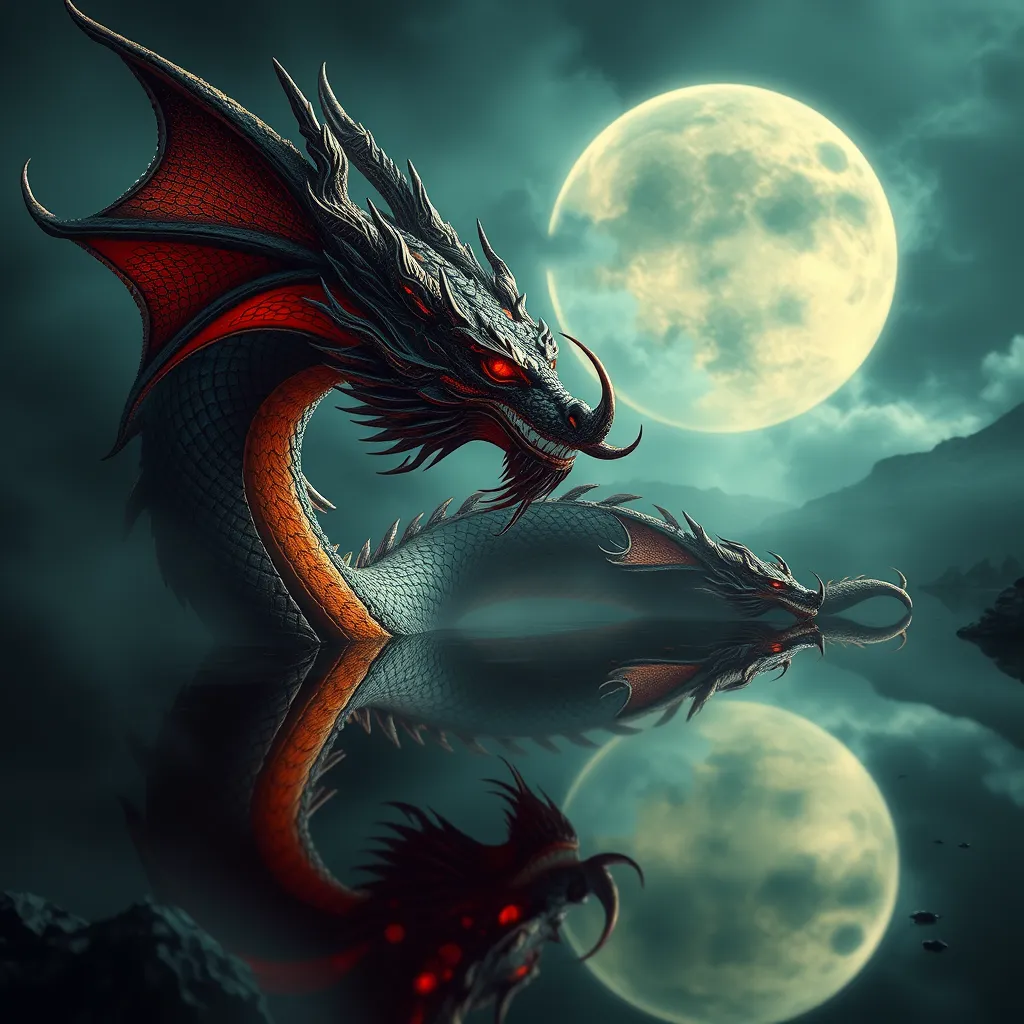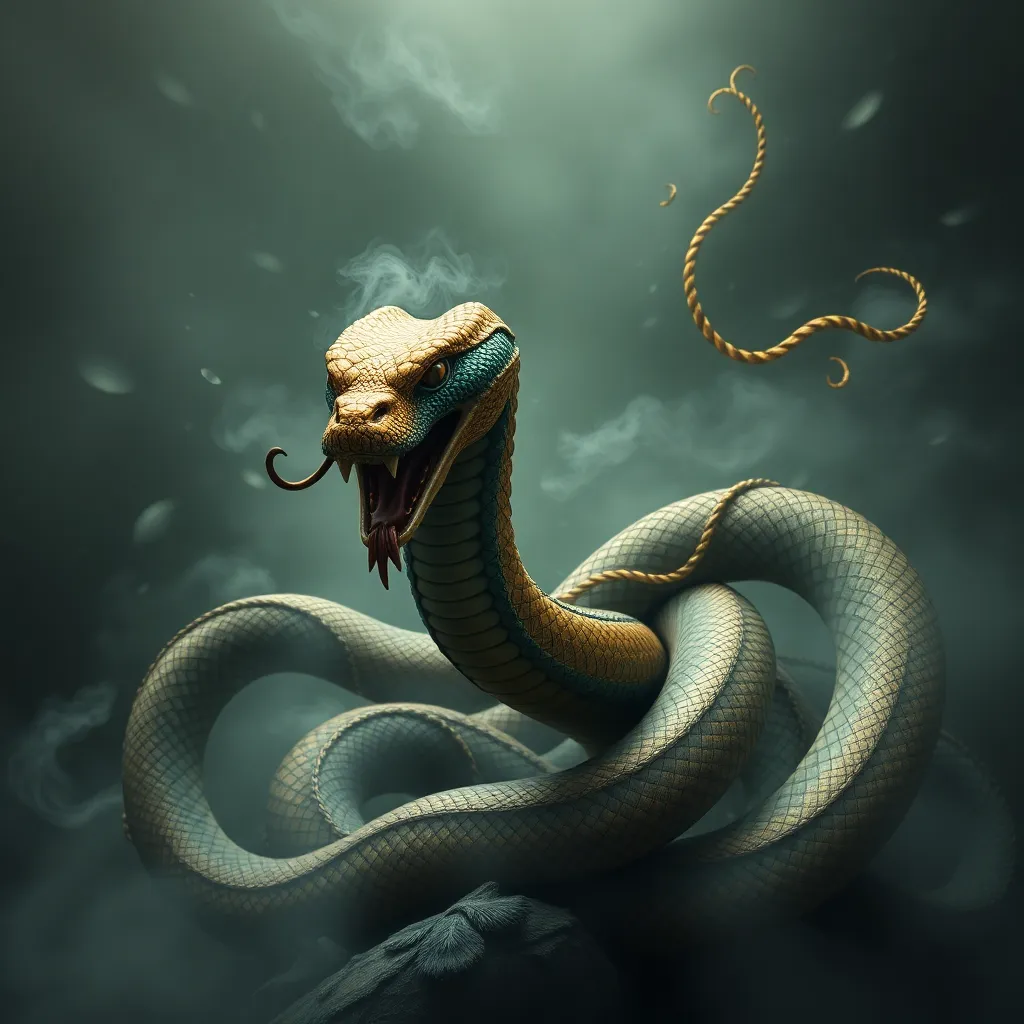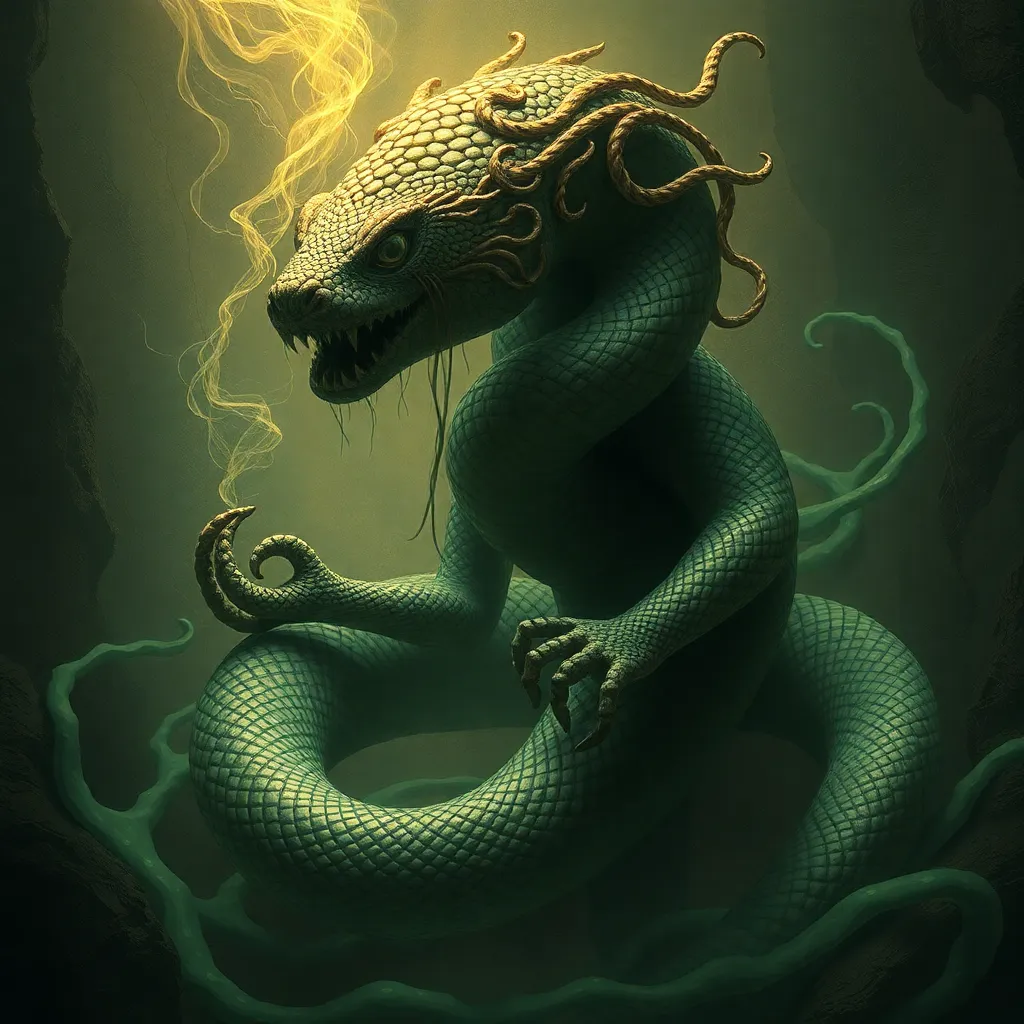The Dragon’s Mirror: Using Dragon Mythology to Reflect on Human Nature and Society
I. Introduction
Dragon mythology is a rich and fascinating aspect of cultural history, appearing in various forms across the globe. From the fire-breathing beasts of Western lore to the wise and benevolent dragons of the East, these mythical creatures often serve as powerful symbols that reflect human nature and societal values.
The concept of the “Dragon’s Mirror” refers to the idea that dragon mythology can act as a reflective tool, allowing us to examine our own beliefs, fears, and societal structures. Through the lens of these magnificent creatures, we can gain insight into the complexities of human emotion and the challenges faced by societies throughout history.
In this article, we will explore how dragon mythology serves as a lens to examine human nature and societal issues, highlighting the symbolism, archetypes, and reflections that these mythical beings provide.
II. The Symbolism of Dragons in Various Cultures
Dragons hold diverse representations across cultures, often embodying a duality that reflects the complexities of human nature. In Eastern cultures, dragons are frequently seen as benevolent beings that bring good fortune and prosperity. For instance, in Chinese mythology, dragons symbolize power, strength, and good luck, often associated with water and agriculture.
Conversely, in Western cultures, dragons are often depicted as malevolent creatures, representing chaos and destruction. These dragons are frequently portrayed as adversaries to be slain by heroes, symbolizing the struggle between good and evil.
- Benevolent Dragons: Found in Eastern cultures, often viewed as protectors and symbols of wisdom.
- Malevolent Dragons: Predominantly in Western mythology, representing greed, chaos, and the darker aspects of human nature.
The significance of dragons in folklore extends beyond mere storytelling; they often convey moral lessons and cautionary tales, reflecting societal values and fears. Through these narratives, dragons teach us about the consequences of our actions and the virtues we should strive to uphold.
III. Dragons as Archetypes of Human Emotion
Dragons serve as powerful archetypes that embody various human emotions and experiences. These mythical creatures can represent:
- Fear and the Monstrous: Dragons often embody our deepest fears—fear of the unknown, fear of death, and fear of our own inner demons. In many stories, they personify the monstrous aspects of humanity, forcing characters to confront their darkest selves.
- Power and Ambition: As symbols of greed and ambition, dragons often represent the destructive nature of unchecked desire. Their treasure hoards symbolize the allure of material wealth and the lengths individuals may go to obtain it.
- Redemption and Transformation: In various narratives, dragons can also symbolize the potential for redemption and transformation. Characters who confront and tame dragons often emerge stronger and wiser, reflecting the possibility of overcoming our basest instincts.
IV. Societal Reflections Through Dragon Mythology
Dragons serve as representations of societal fears and challenges, often reflecting the anxieties of their time. In medieval Europe, for example, dragons symbolized the threat of invasion and the chaos of the natural world. The act of slaying a dragon was often seen as a metaphor for overcoming societal challenges and asserting order.
Additionally, dragons play a significant role in cautionary tales and moral teachings, warning against hubris, greed, and moral corruption. Historical contexts show how dragons have mirrored the concerns of their times, adapting to the cultural narratives surrounding them.
V. The Dragon in Modern Media and Its Impact
In contemporary culture, dragons have evolved in literature, film, and video games, often taking on new meanings and representations. Popular franchises such as “Game of Thrones” and “How to Train Your Dragon” showcase the multifaceted nature of dragons, blending traditional mythology with modern storytelling.
The evolution of dragon representations has influenced societal values and beliefs, challenging the binary of good and evil. Modern depictions often explore themes of coexistence, understanding, and the complexity of both dragons and humanity.
VI. The Psychological Dimension: Dragons and the Human Psyche
From a psychological perspective, dragons can be analyzed through a Jungian lens, where they represent symbols in the collective unconscious. They embody the archetypal fears and aspirations of humanity, serving as a mirror to our innermost thoughts and feelings.
Personal and cultural narratives surrounding dragons shape their meanings, allowing individuals to connect with these myths on a deeper level. Engaging with dragon mythology can also hold therapeutic potential, offering a means to confront and explore personal fears and societal issues.
VII. Bridging Mythology and Reality: Lessons for Society
Dragon myths impart valuable lessons about human behavior and societal structures. They encourage self-reflection and highlight the importance of understanding moral and ethical dilemmas. Through the stories of dragons, we can glean insights into the consequences of unchecked ambition, fear, and greed.
Case studies of contemporary issues, such as environmental concerns and power struggles, can be examined through the lens of dragon lore. The tales of dragons remind us of the importance of balance, respect for nature, and the need for collective responsibility.
VIII. Conclusion
In conclusion, dragons serve as a powerful lens through which we can explore human nature and societal issues. Their significance in mythology transcends cultural boundaries, offering insights into our fears, ambitions, and moral dilemmas.
The enduring legacy of dragon mythology continues to shape our worldview, encouraging reflection on our behaviors and values. As we navigate the complexities of modern life, the lessons of dragon lore remain relevant, reminding us of the importance of understanding ourselves and our society.
Ultimately, the “Dragon’s Mirror” challenges us to confront our inner dragons, fostering a deeper understanding of the human experience and the world we inhabit.



